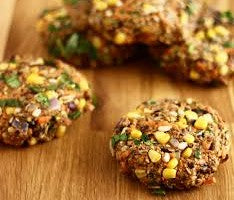
Vegetarian Sources of Protein
1. Whole Grains and Quinoa

Whole grains are a great source of protein, but the queen of whole grains when it comes to protein content is quinoa. Just one cup of cooked quinoa contains 18 grams of protein, as well as nine grams of fiber. Other whole grains, including whole grain bread, brown rice, barley are all healthy protein-rich foods for vegetarians and vegans as well.
Protein content: One cup of cooked quinoa provides about 18 grams of protein.
2. Bean, Lentils, and Legumes

All beans, lentils, and peas are an excellent vegetarian and vegan source of protein, so eat whichever one you like! Black beans, kidney beans, Indian dhal, vegetarian chilli, split pea soup and chickpea hummus - pick one and watch the protein grams add up.
Protein content: One cup of canned kidney beans contains about 13.4 grams of protein.
3. Soy and Tofu

Soy is such a flavor chameleon that you'll never get bored! You may have tried tofu and soy milk before, but what about edemame, soy ice cream, soy yogurt, soy nuts or soy cheese? As an added bonus, many brands of tofu and soy milk are fortified with other nutrients that vegetarians and vegans need, such as calcium, iron and vitamin B12. And yes, I did just give you permission to eat soy ice cream to get your protein.
Protein content: A half-cup of tofu contains 10 grams, and soy milk contains 7 grams of protein per cup.
4. Nut butter, seeds, and nuts

Nuts, including peanuts, cashews, almonds and walnuts all contain protein, as do seeds such as sesame seeds and sunflower seeds. Because most nuts and seeds are high in fat, you don't want to make them your primary source of protein. But they're great as a post-workout or occasional snack. Nut butters are delicious as well, and kids of course love peanut butter. Try soy nut butter or almond butter for a little variety if you're bored of peanut butter.
Protein content: Two tablespoons of peanut butter contains about 8 grams of protein.
5. Veggie Burgers and Meat Substitutes

Read the label of your store-bought meat substitute products and veggie burgers and you'll find they are quite high in protein! Most commercial meat substitutes are made from either soy protein, wheat protein (wheat gluten) or a combination of the two. So toss a few veggie burgers on the grill or in the microwave, and watch those daily protein grams add right up. Homemade seitan is quite high in protein as well.
Protein content: One veggie patty contains about 10 grams of protein, and 100 grams of seitan provides 21 grams of protein.
6. Protein Powder Supplements

So what if you are body builder or are trying to gain some serious muscle? In this case, your protein needs will be higher than the average vegetarian. You may be considering supplementing with protein powders or protein shakes. Read the label and watch out for cheap fillers in whey and soy protein powders. It's best to shell out and invest in a good quality. There are lots of plant based protein powder options for vegans and vegetarians. Do your research.
Protein content: Read the label of your brand of protein.